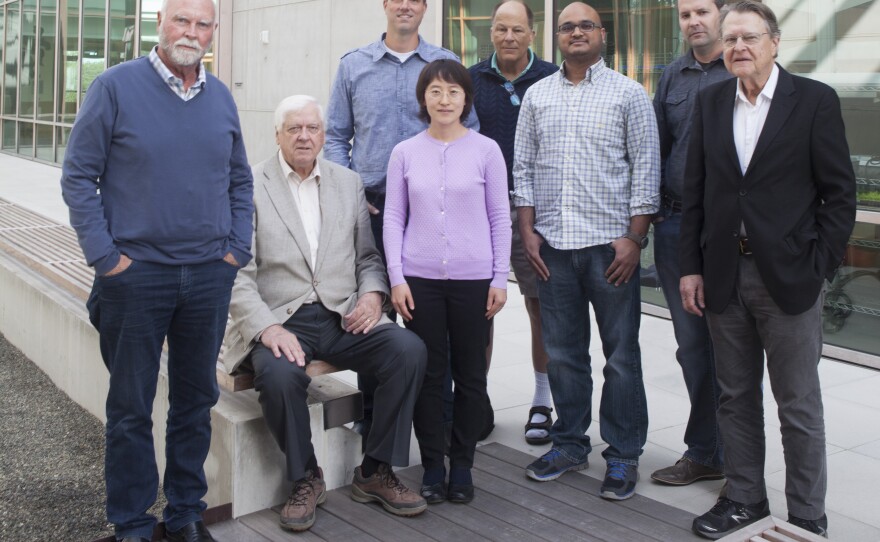Just how many genes are needed to sustain life? Fewer than 500, according to new research led by a San Diego genomics pioneer.
La Jolla scientist J. Craig Venter, who played an instrumental role in sequencing the first human genome, focused on a much smaller organism in his most recent study.
Venter and his colleagues have synthetically designed a living, self-replicating bacterial cell with the smallest genome known to science. They describe the results in a paper published Thursday in the journal Science.

Some of the J. Craig Venter Institute researchers involved in the study have been working on the project since the mid-1990s. It took them years to meticulously subtract genes and determine which were essential for life.
In the end, they produced a viable cell containing just 473 genes. They named it JCVI-syn3.0.
Venter and his colleagues were surprised to find that even after stripping the genome down to its bare essentials, about a third of the remaining genes perform roles currently unknown to science.
"Thirty-two percent of the genes required for life in this most simple of all organisms are of unknown function,” Venter said in a teleconference about the study.
Venter said his research team hopes to refine scientific understanding of the exact roles played by every gene essential to life.
"We view life as DNA software-driven, and we're showing that by trying to understand that software, we can better understand life," he said.
Venter is the co-founder of Synthetic Genomics, a La Jolla-based company that aims to harness synthetic biology toward the goal of creating new medicines, biofuels and other products, including "humanized" organs grown in animals for transplantation into people.
Synthetic Genomics' Daniel Gibson, who co-authored the new study, said these minimal cells could be a useful template in further work toward reaching those goals.
"Our long-term vision has been to design and build synthetic organisms on demand," he said.






